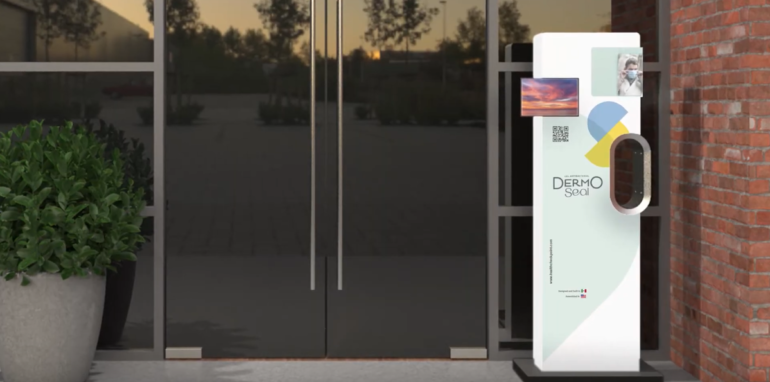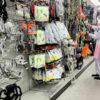Welcome to the new world.
Screenshot by ZDNet
Glimmers of optimism are beginning to invade the public debate.
more Technically Incorrect
And by public, I don’t just mean those progressive spring breakers fighting for their freedom on the beaches.
Many businesses are now seriously considering a return to their office buildings, some abandoned a year ago.
Things, of course, still won’t be quite the same.
I was moved, then, by an entreaty from a company that claims it’s preparing offices, hotels, restaurants, and schools to screen anyone who enters.
Multimedia Care insists its Heath Checkpoint will be the de rigueur method for keeping COVID-19 out of buildings. Or, as its website insists on describing it, this is a “one-stop wellness solution.” Because who wants to take two stops to wellness?
With this Health Checkpoint, you stand and stare into a screen.
You get an automated squirt of hand sanitizer as you do. And then a “high-precision thermographic sensor” performs a dramatic two-stop. It checks your temperature while simultaneously detecting whether you’re wearing a mask.
Perhaps without noticing, you may also have to take a foot bath. This, say the creators, sanitizes the soles of your shoes. I fear some soles may be past sanitizing, but this is a fascinating development. (There’s a rubber mat option, too.)
You might wonder, though, that this won’t be an instant affair. You’ll be standing there, having your sole bathed, for a little time. Multimedia Care has some ideas about that.
Among these, and I had to pause for breath at this point, is “a billboard-like advertising platform for partner branding, event rentals, charitable donations, and other revenue-generating opportunities.”
Having your health checked means you’re a standing duck for a sales pitch? But of course.
Some part of me wonders if a righteous company might force its employees to make a charitable donation every day before being allowed to enter. A great idea for Facebook, surely.
At this point, I had to pause for spiritual oneness. You’re staring into a camera. Is all this health-consciousness an avenue for businesses to employ facial recognition technology?
I only ask because Thomas Smith, CEO of Gado Images, wrote a pungent description of his experience being scanned by a health-screening InVidTech tablet at an office building.
He discovered this was billed as an “HD temperature measurement and face recognition terminal.” This, apparently, recognizes faces in 0.5 seconds from up to 6.5 feet away. Which adds a troubling kink to the concept of social distancing.
Naturally, I asked Multimedia Care whether its foot-bathing affair also recorded your face for posterity.
“The reason we steer clear of using the words ‘facial recognition’ is specifically because that denotes a database to compare against — hence, recognizing a specific face,” the company’s executive director Seth Rubenstein told me.
Perhaps another reason might be that the words “facial recognition” incite tinges of nausea in many of those who hear it.
But Rubenstein insisted: “Because we are not tied to the cloud and there is no local storage on the device itself, we use the terms ‘mask verification’ or ‘mask detection.’ The sensor is looking for facial definition below the eyes. If none can be read, it assumes there is a mask. If it can detect a nose and mouth, a voice gently reminds the guest to ‘please wear a mask.'”
I know you’re relieved to hear the word gently. No one likes to be scolded in an aggressive manner. Rubenstein helpfully added that the gentle voice “can be substituted with that of a celebrity or well-known figure/voice in an organization, such as a CEO or spokesmodel.”
Ah, imagine turning up to work and the first thing you hear is your CEO gently reminding you to wear a mask. Or, perhaps at some point in the future, to comb your hair. Or will your CEO leave it to Meryl Streep?
Clearly, this is a new world and new tech tools are being created to serve it. It’s always worth asking, though, what precisely the health-screening technology is doing. And what it can do.



